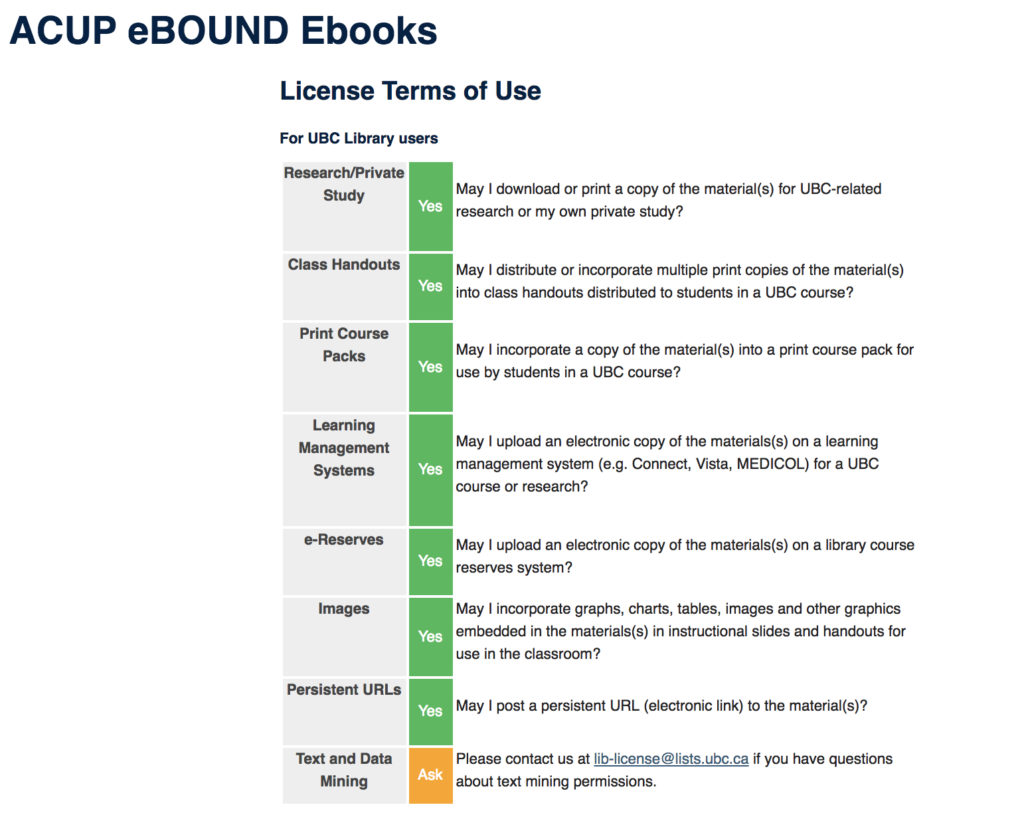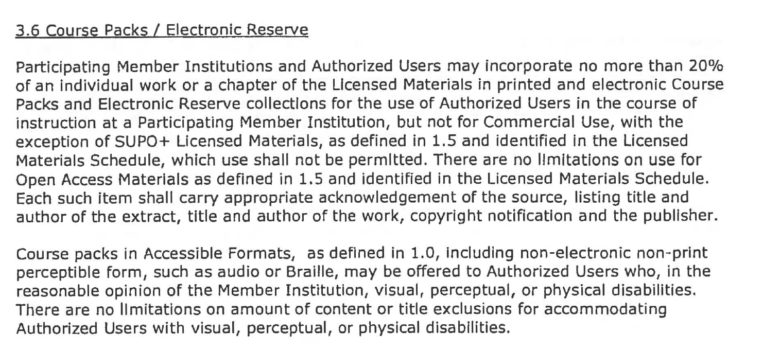The series on misleading on fair dealing continues with a post on how to reconcile the data about which everyone agrees: education has spent more on licensing since 2012, but some copyright collectives (Access Copyright and Copibec) have generated less revenue (prior posts in the series include the legal effect of the 2012 reforms, the wildly exaggerated suggestion of 600 million uncompensated copies each year, the decline of books in coursepacks, the gradual abandonment of print coursepacks, and the huge growth of e-book licensing).
The issue was the focal point in the following exchange between MP Maxime Bernier and Copibec’s Frédérique Couette last May:
Hon. Maxime Bernier: So you also agree that, when universities claim they are paying more and more for copyright, that is true on the one hand. On the other hand, you say your revenues are dropping, for the reasons you just explained. Is that correct?
Ms. Frédérique Couette: What the universities are telling you is really that they are paying more for acquisitions, while what they pay us for is reproduction.
In other words, the explanation offered by Access Copyright, Copibec, and author/publisher groups for why spending is up but their revenues are down is simply that the two licenses are different. They say education may be spending more on licensing, but those licences are to acquire access to content, not make copies of the works for students and teachers. The licence offered by the collectives covers the copying activity, which, they argue, is separate from acquisition or access.
The copyright collectives are wrong. The evidence on the shift to digital demonstrates that physical copying for coursepacks is largely disappearing. Previous posts highlighted how coursepacks are being dropped in favour of digital course management systems, how the content on CMS is shifting away from books to other content, and how the amount of “copying” is declining as postings on course sites replace actual copies. Moreover, with some universities now licensing over a million e-books, the content is readily available in digital, licensed form to be incorporated into CMS.
Yet beyond the evidence on educational practices, are the licences themselves. Access Copyright and Copibec may infer that only their licence covers reproduction, but that is not the case. As demonstrated below, many of the content licences include reproduction rights that meet or exceed what is offered by Access Copyright. Access Copyright’s latest proposed tariff offers the following copying permissions:
(a) make a Copy, including for use in a Course Collection, of up to twenty per cent (20%) of a Repertoire Work; or
(b) make a Copy of a Repertoire Work that is
(i) an entire newspaper or periodical article or page,
(ii) a single short story, play, poem, essay or article,
(iii) an entire entry from an encyclopaedia, annotated bibliography, dictionary or similar reference work,
(iv) an entire reproduction of an artistic work (including a drawing, painting, print, photograph and reproduction of a work of sculpture, an architectural work of art and a work of artistic craftsmanship), and
(v) one chapter, provided it is no more than twenty five per cent (25%) of a book.
Those copying rights are very similar to what is provided in many standard e-book licences. For example, the Canadian Research Knowledge Network’s 2015 Ebooks License Agreement, which involves every major Canadian university press, features the following rights:
Participating Member Institutions and Authorized Users may incorporate no more than 20% of an an individual work or a chapter of the Licensed Materials in printed and electronic Course Packs and Electronic Reserve collections for the use of Authorized Users in the course of instruction at a Participating Member Institution…
The licence also covers:
Authorized Users may incorporate a durable link to the Licensed materials and no more than 20% or a chapter of an individual work contained in the Licensed Material to be used in virtual and managed environments per course (including but not limited to virtual learning environments, managed learning environments, virtual research environments, library environments, and courseware technology) hosted on a Secure Network..
Moreover, there are the following additional rights found in the licence:
- the right to email up to 20% or one chapter to third party colleagues for personal use or scholarly, educational, or scientific or professional use
- inter-library loans to non-participating member institutions
- text and data mining of the Licensed Materials
- the right to allow walk-In users to access the materials at designated terminals
- the right to create indices to the Licensed Materials
A model version of the CRKN licence can be found here.
By contrast, the Access Copyright tariff restricts any transfer of the materials to an unauthorized person, no index can be made, and there are no specified rights on text data mining. This is just one of hundreds of e-book licences signed by Canadian universities that provide both access and reproduction rights. In fact, UBC posts information on the licence terms for each licence, clearly indicating what can be done with the materials.

UBC ACUP eBOUND Ebooks, https://licenses.library.ubc.ca/ACUP_EboundEbooks
Contrary to the assertions of Access Copyright and Copibec, a review of the licences makes it clear that universities are buying far more than just access. The licence terms for hundreds of thousands of e-books offers access, reproduction in course materials, and far broader range of rights and uses than those found with the Access Copyright licence. If revenues are dropping for one licence, it is because it offers far less value than competing licences covering the same materials.








Mr. Geist’s various postings make no distinction between works generated in the academic sector and works generated by creators unaffiliated with an institution. Access Copyright and Copibec represent content generated by these unaffiliated creators and small publishers who depend on sales and royalties for their income. This category of works is not likely to be offered in the kind of e-book packages described by Mr. Geist, packages that offer such generous reproduction rights (one chapter or 25 % of a book). Will Penguin Canada sell a package of recent novels that allow such explicit sharing and reproduction? Not likely.
Also, whether a short story, poem or novel chapter is in a course pack or in a digital rights management system makes no difference. The copying guidelines employed by universities apply equally to both unless the content is covered by another licence (the kind mentioned above that most likely do not apply to unaffiliated creators). The copying guidelines adopted by universities have been deemed unfair in a federal court.
Pingback: New Copyright Series by University of Ottawa Prof Michael Geist “Misleading on Fair Dealing” – Stephen's Lighthouse
Pingback: Copyright Series by University of Ottawa Prof Michael Geist | librarianE
Pingback: Misleading on Fair Dealing, Part 8: The Access Copyright Fight Against Transactional Licensing - Michael Geist
Hi! I could have sworn I’ve been tto this website before
but after going through a few of the articles I
realized it’s new to me. Anyways, I’m certainly pleased I
found it and I’ll be bookmarking it and checking back frequently!
What’s up mates, its wonderful piece of writing about educationand fully explained,
keep it up all the time.
Pingback: News of the Week; November 28, 2018 – Communications Law at Allard Hall